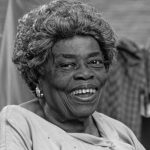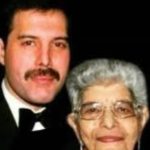A Call for Help at 2 AM: How One Officer Changed a Boy’s Life with Compassion

It was 2 a.m. on a quiet Tuesday in Charleston, South Carolina, when a 13-year-old boy dialed 911. The dispatcher braced for crisis—fire, break-in, medical emergency. But what came through the line was something no one expected. The boy wasn’t in danger. He wasn’t reporting a crime. He was just exhausted, emotionally and physically, after yet another night spent on a deflated air mattress in an empty room.
When Officer Gaetano Acerra responded, he anticipated trouble. Instead, he stepped into a scene that pierced him to the core. A child with slumped shoulders, hollow eyes, and a room stripped bare of comfort. No bed. No furniture. Nothing to mark it as a safe place to rest.
The boy’s grandmother, who had taken him in, was doing her best. But love alone couldn’t stretch far enough to provide furniture, decorations, or even the simple comfort of a real mattress. They were surviving—but just barely.
For many officers, the encounter might have ended with a report filed and words of reassurance. But Acerra, a 15-year veteran of the force, couldn’t let it go. Driving home that night, he kept seeing the boy’s defeated expression, the emptiness of those four walls. He thought about his own children and what it would mean if they were forced to grow up in such stark conditions.
Three days later, Acerra returned. But this time, he wasn’t in uniform with paperwork in hand. He was behind the wheel of a pickup truck, the bed filled to the brim.
Out came a real bed with fresh sheets, a desk and chair so the boy would have a place to study, lamps and decorations to turn bare walls into something warm and welcoming. And tucked among the essentials was one special surprise: a Nintendo Wii.
“Because every kid,” Acerra explained, “needs something to look forward to.”
The transformation was immediate and profound. Where there had once been emptiness, now stood a teenager’s sanctuary. Where there had been hopelessness, now flickered joy. The boy’s face lit up in a way Acerra would never forget.
“It wasn’t just about furniture,” Acerra later reflected. “It was about giving him back a piece of his childhood.”
Word of the officer’s act quickly spread, picked up by local news and then national outlets. For a public often inundated with headlines of division and hardship, the story struck a chord. Here was a reminder of what compassion can do when paired with action.
When asked why he went so far out of his way, Acerra’s answer was simple: “I’ve got kids too. Sometimes you just know what’s right.” There was no fanfare, no attempt to paint himself as a hero. Just a father, a policeman, and a human being who saw a need and chose to meet it.
For the boy, that night marked a turning point. He no longer had to dread bedtime. He had a bed to rest in, a desk to learn at, and a space that felt like his own. More than that, he had proof that someone cared enough to see him, listen, and act.
Stories like these remind us that heroism isn’t always about sirens or arrests. Sometimes it’s about quiet kindness, looking beyond the surface of a 911 call, and recognizing the deeper cry for help.
Officer Acerra didn’t just deliver furniture. He delivered hope. And for one boy, on one night, that made all the difference.











